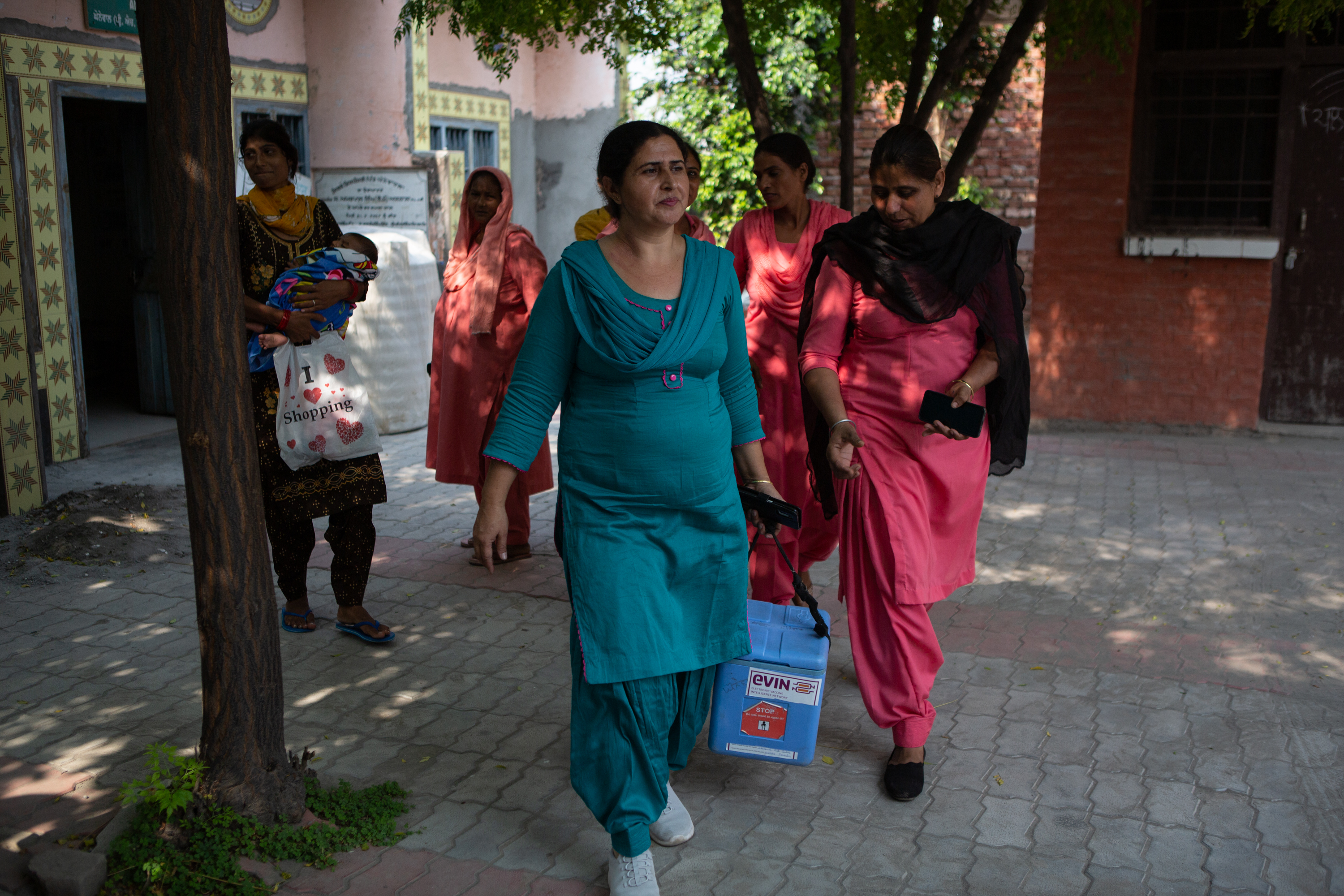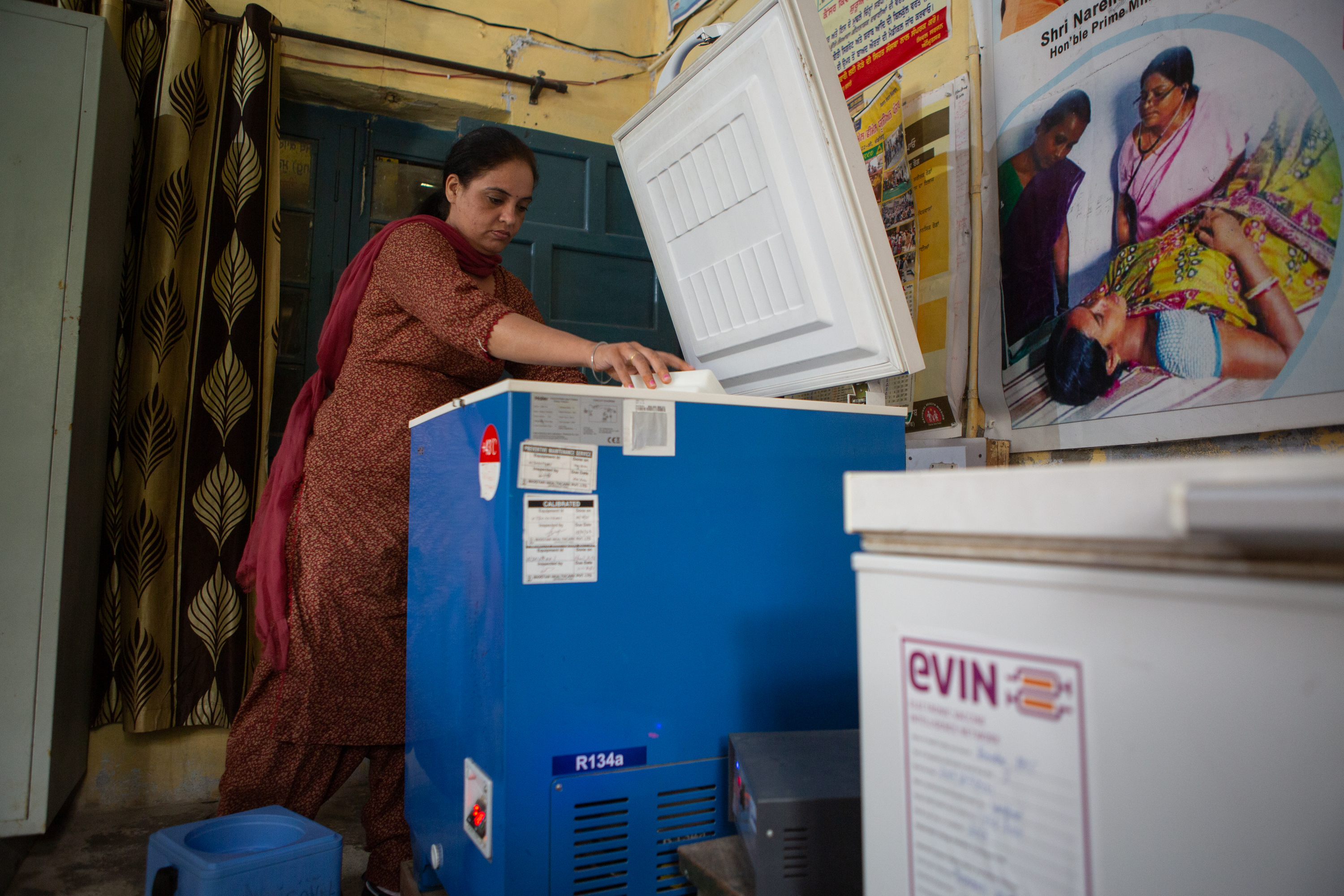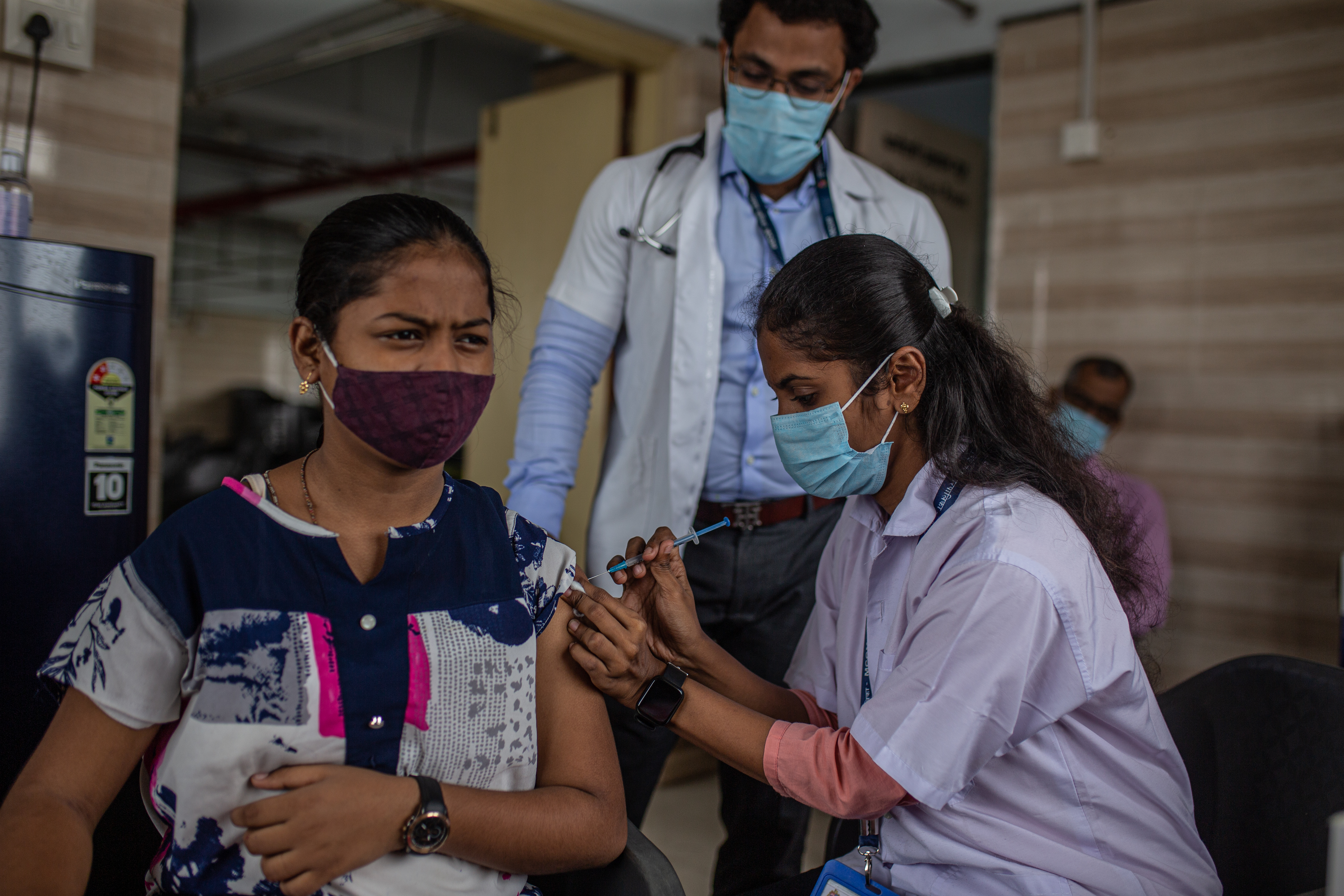Digital dose – Indian women health workers lead charge
May 2, 2023

Every day, at the crack of dawn, over 230,000 women healthcare workers across India's cities and towns leave home. On most days, they scramble to finish their morning chores to reach their health centres on time, often traversing through deep forests, rivers, hills, deserts or their city's empty lanes. They do this to ensure everyone has access to life-saving vaccines, especially children and pregnant women.
Dressed in their traditional everyday clothes or colour-coded salwar kameez, these women may look like everyone else, but form one the largest cadres of healthcare workers in the world - supporting India's immunization programme. They work at the frontline every day – fighting preventable diseases that plague our children or leading the charge against a deadly pandemic.
Their armour reinforced with technology.
Developed by the Government of India and the United Nations Development Programme, with GAVI support, this technology is revolutionizing vaccine management in the country and empowering health workers to do their jobs efficiently.
Introduced in 2015, the Electronic Vaccine Intelligence Network or eVIN is the game-changer. It digitizes vaccine stocks and monitors the temperature of the cold chain through a smartphone application. The tech platform – with a 99 percent adoption rate – ensures no stock outs. Importantly, it also empowers India’s last-mile healthcare workers, most of whom are women - thereby strengthening immunization systems in India.
Through the app, they can get complete information about vaccine stocks and their storage temperatures. "It takes one click to get all the information we need. Now, no mother is turned back due to stockouts. Thanks to this app, we do our jobs well. And that gives us confidence," says Baljit Kaur, a cold chain handler and vaccinator from Punjab, a state in North India, which remains a straggler in vaccination coverage.

This confidence is shared by other women vaccinators.
Before eVIN, stocks were managed manually through physical record-keeping in registers and charts. Most health workers – especially women – would find it challenging to monitor vaccine temperatures at night or during weekends. This often led to uneven vaccine distribution, unavailability and wastage.
Today, 57-year-old Veena Kumari, a cold chain handler from Punjab, shares how the smart temperature logger helps her maintain the safety and quality of vaccines, even from home. "This device will send the temperature data directly to the eVIN app, which is accessible from anywhere. So when I go home to my family, I am no longer stressed. I can spend time with them without worrying about a potential breach in safety standards."
eVIN - implemented successfully across all vaccine storage centres in the country - with technical support from UNDP in India, is playing a small but important part in bridging the digital divide – particularly in rural areas. Even today, a large population of Indian women do not have access to smartphones. Seeing healthcare workers – leading a transformative healthcare programme from their smartphones - changes perceptions and challenges stereotypes amongst communities.

Thirty-six-year-old Gurjeet Kaur, cold chain handler at the primary health centre of village Shampura in Gurdaspur, confirms this. “This app has boosted my confidence. I never thought I would work with data to prepare and upload my reports. It sounds daunting, but eVIN makes it easy. I am connected with my team and other vaccinators through the smartphone – we post and respond to queries in real time and get our work done.”
The success of eVIN has been instrumental in conceptualizing and re-tooling to Co-WIN – the digital backbone of the world’s largest vaccine drive against COVID-19.
Evidence shows that equipping healthcare workers with digital skills can fasten the adoption of digital solutions to register and manage beneficiaries, maintain data accuracy and promote collaboration. To assist, UNDP in India embarked on a mammoth task of training personnel on using the Co-WIN software (Winning over COVID) for individualized tracking of COVID-19 vaccination. The experience of skilling a last-mile workforce with digital technology helped UNDP train over 1.2 million frontline workers, primarily women.

These women frontline workers have been the real strength and the face of India’s vaccination programme – working round the clock to administer vaccines and countering vaccine hesitancy through community engagement.
“Initially, convincing people to get vaccinated was not easy. There were too many rumours about efficacy, death and impotence that scared people. We worked round-the-clock to counter fake news, went door-to-door to mobilise support, demonstrated results through CoWIN and soon enough, we saw a change in people’s attitudes,” says 25-year-old Ankita, a healthcare worker from Mumbai.
India’s vaccination success is the result of the determination of its frontline health workers and technology working together to ensure that no one is left behind.

 Locations
Locations

